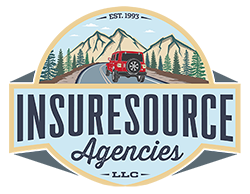Any vehicle parked on the street must have at least basic liability insurance in case a passing motorist hits it. If someone else hits a parked car on the road, you could be cited for your vehicle being involved in an uninsured accident, even if it wasn’t your fault and was parked correctly. Additionally, many cities have ordinances aimed at reducing the number of abandoned cars. If you leave your automobile parked on the street for a long time and the plate comes back uninsured, your town might order it to be towed at your expense.
Storing the car on private property is fine if you remove the vehicle’s insurance. But there’s another problem. You still have to prove to the DMV of Oregon that, if your car has good tags, you have at least liability insurance. To avoid paying for insurance on a vehicle you plan on storing for a long time, consider turning in the plates at the DMV. Whatever you do, keep the car on private property.
2. Consider comprehensive (parked) coverage.
For very little more money, many companies will allow you to place the unused vehicle on parked coverage. Many people think that their homeowner or renters insurance will cover everything stored in the house, should a fire occur, including the garage. While that might be true for tools and food in the garage, it doesn’t apply to automobiles, boats, motorhomes, airplanes, and ATVs. Since insurance is available separately for those types of assets, the typical homeowner policy will exclude coverage for such items.
If you park your unused automobile outside, it is subject to theft, vandalism, and damage from hail, fire, wind, or a tree falling on it. All those perils would be covered under the comprehensive section of your auto policy.
I’ve seen policies go down in price by switching a car to comprehensive only coverage by maintaining the multicar discount. If you have two vehicles but use only one, consider changing it to parked coverage to save some money while providing better coverage than simply removing it from the policy.
